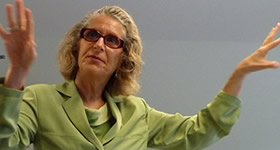I so enjoyed teaching governance twice at SMUMN this past summer. I’ve shared comments from Cohort 27 in previous “Notes from my dorm room”.
Now I’m sharing comments from Cohort 28. I hope these comments challenge you to examine governance in your organization…question your approach and level of knowledge…learn and make change!!
Mackenzie said: “I am extremely nervous about the amount of work it will take to make great governance. [But], I’m looking forward to the challenge.”
Greg gives us something to laugh about: “Good governance. How do you make it happen? I wish it was as easy as getting fatter. Or mandatory, like aging.” And more seriously, he says: “The CEO and board chair/board members don’t have to agree, but they have to learn how to disagree with respect, using facts and data to support constructive discussion…. [T]hey have to be able to say uncomfortable things. They don’t argue to win; they argue to resolve.”
Rachel reminds us: “CEOs ned to be a governance expert.” And…”The board is a collective.”
Nate reminds us that “we need to do a better job of bringing strategic questions and topics to our board in order to have more strategic conversations.”
Luke said: “I discovered the difference between management and governance. This, to me, is the most important part. The board and board members must understand thei roles. If they do not, it is a MESS.”
Lisa commented: “I love the fact that power – for lack of a better word – is distributed. There are checks and balances, and that there are people ideally together working on your mission and there to help. But it’s not a perfect system. If it was, it would be incredible. But not everyone is on board. People don’t know the rules, and people don’t want training. So it is up to the ones of us who know what’s going on to step up and help others understand.”
Samantha notes: “The relationship between boards and staff is often unbalanced.”
Colleen’s insight: “The CEO needs to be the most knowledgeable person in the room about board governance (in addition to the organization’s operations.) Previously, I’d really thought that was up to the Board Chair.”
What’s happening in your organization? How will you learn and lead change?

